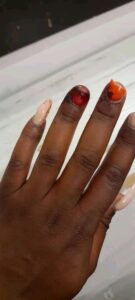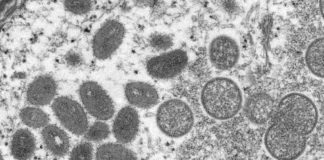 The other pandemic – GBV
The other pandemic – GBVWhile the country grapples with COVID-19 and its third wave devastation, there is another outbreak going under the radar. Hate crime and gender-based violence needs serious attention if alarming figures are to be brought under control anytime soon.
While the country grapples with COVID-19 and its third wave devastation, there is another outbreak going under the radar. Hate crime and gender-based violence needs serious attention if alarming figures are to be brought under control anytime soon. Thembisile Nkosi is a 28-year-old transgender woman from the Eastern Cape who suffered a brutal attack in May this year. Why? Her sexual orientation of course.
“I was visiting a girlfriend in Cape Town who had returned home from a traditional ceremony overseas. We were joined by some of her other friends and relatives who later suggested we should visit a local tavern close by,” explained Nkosi.
She said things took a turn for the worst when two men joined them.
“I wasn’t in the mood to drink and was busy on my phone. One of them kept asking if I was fine and when I ignored him, he kept pestering me,” said Nkosi, before adding: “I asked him what his problem was and he said I was thinking of myself too much.”
Nkosi said other people intervened and he eventually backed off. But the situation was soon set to explode when the man’s companion called her outside to ‘apologise’.
The suspect became aggressive and hurled obscenities at Nkosi before taking out a gun.
“He threatened to kill me and said people like me deserve to die,” she said.
The incident soon became violent. “I wanted to run back inside but he pulled me by my hair and started beating me with a golf club, attacking various areas of my body including my neck.”

Victim’s lack of faith in law
Nkosi said she still feels haunted by her ordeal since the suspect hasn’t been apprehended.
“I’m very disappointed by the law enforcement because the investigating officer has only spoken to me once since I opened the case at Gugulethu police station.
Feeling as if her case wasn’t worthy only added to her woes with the news that the suspect is possibly a policeman himself.
All is not lost for Nkosi though. Warrant officer Noluntu Ntontela said a case of assault and attempted murder had been opened and that the police are investigating the matter.
Burnt to death for being gay
The atrocities are occurring at an alarming rate. Here are just some others which most probably didn’t even make the news.
Sam Mbatha – an openly gay man from the North West – was bundled into the boot of his car and burnt to death last month.
Another, Sphamandla Khoza, a 34-year-old man from Ntuzuma in KwaZulu Natal, was stabbed and had his throat slit in a suspected hate crime in April this year.
General Secretary of the Gay and Lesbian Alliance of South Africa (GALA), Frank Gazu, said that they are still shocked by the spate of killings within in the LGBTI community.
“Our government needs to train and educate police on how to deal with LGBTI cases. We don’t need acceptance, we just want tolerance and respect for we are humans too,” he added.
GBV – a deeply-rooted problem in SA culture
According to the online portal SaferSpaces, Gender-Based Violence (GBV) is a widespread problem in South Africa which disproportionately affects women and girls. GBV is systemic, and deeply entrenched in institutions, cultures and traditions in the country.
The portal which shares knowledge and acts as a networking tool for community safety, defines GBV as: “the general term used to capture violence that occurs as a result of the normative role expectations associated with each gender, along with the unequal power relationships between […] genders, within the context of a specific society.”
GBV can be physical, sexual, emotional, financial or structural and perpetrators normally range from intimate partners to absolute strangers or institutions. Most acts of interpersonal GBV are committed by men against women and the man is often known by the woman.
Taking a closer look at statistics
It remains a challenge to obtain accurate statistics since most of these incidents aren’t reported but it is clear South Africa has high rates of GBV including Violence against women and girls (VAWG), and against members of the LGBT (lesbian, gay, bisexual and transgender) community.
Population-based surveys show very high levels of intimate partner violence (IPV) and non-partner sexual violence (SV). Further evidence reveals between 25 and 40% of South African women have experienced sexual and/or physical IPV and between 28 and 37% of adult men claim to have raped a woman.
Devastating consequences on several fronts
These human rights violations have several impacts including major social and developmental impacts for the survivors and their families and communities. On an individual level, they need help to deal with their psychological trauma which can prove difficult in a country like South Africa where access to mental health and medical support is often limited.
The economy is also severely affected since the high rate of GBV places a heavy burden on health and criminal justice systems.
According to the latest available data included in a KPMG report, which quotes a Tambo Foundation study conducted in 2014, GBV cost the country between R28.4 billion and R42.2 billion a year.– Health-e News








